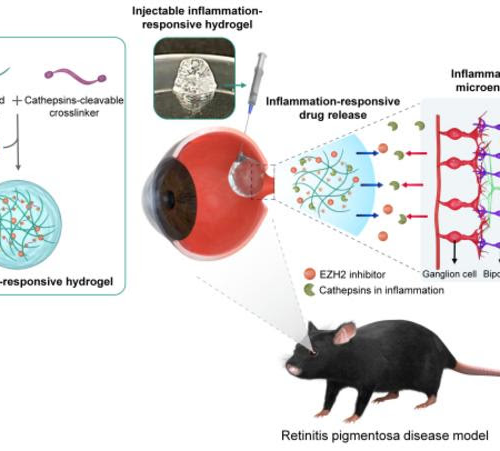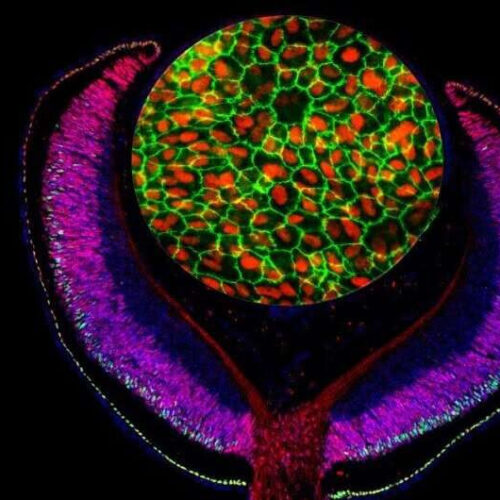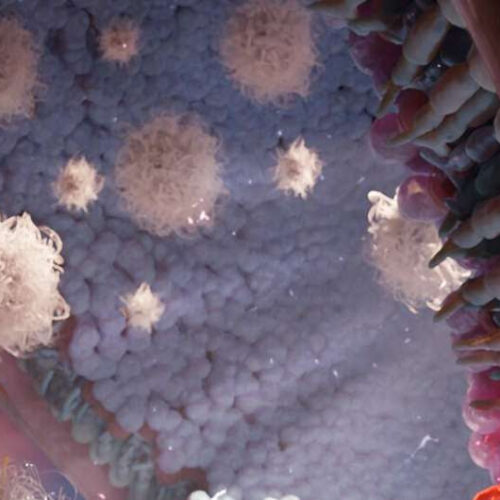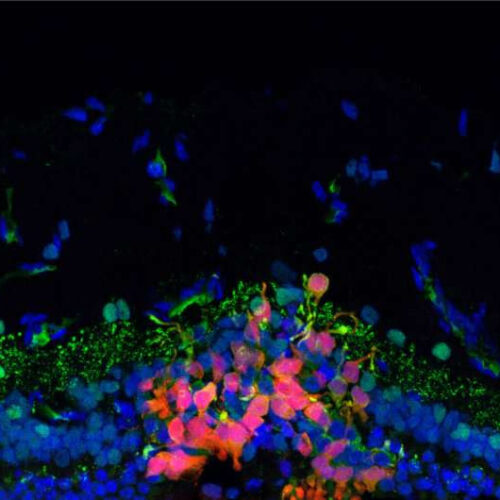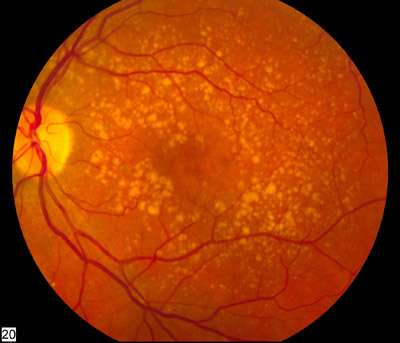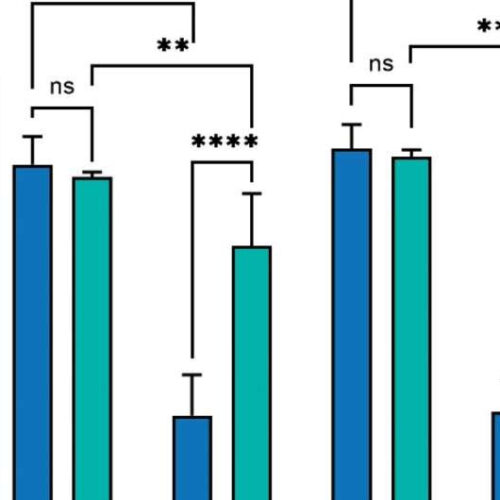by Kim Krieger, University of Connecticut The image show two optic nerves, six weeks after they have been crushed (injury marked with a rhombus.) The nerves project fibers from left to right. Live nerve tissue glows green in this image, while damaged nerve tissue is dark. The top nerve was not treated with any regenerative factors,...
Tag: <span>Blindness</span>
New apps will enable safer indoor navigation for blind people
image: A blind person navigates indoors with the help of the new app and a blind dog. Credit: Roberto Manduchi Two new apps will enable blind people to navigate indoor buildings with spoken directions from a smartphone app, providing a safe method of wayfinding where GPS doesn’t work. UC Santa Cruz professor of Computer Science...
Blindness from some inherited eye diseases may be caused by gut bacteria, news study suggests
by University College London Credit: CC0 Public DomainSight loss in certain inherited eye diseases may be caused by gut bacteria, and is potentially treatable by antimicrobials, finds a new study in mice co-led by a UCL and Moorfields researcher. The international study observed that in eyes with sight loss caused by a particular genetic mutation, known...
New treatment developed to dramatically slow down the progression of blindness-causing retinal diseases
Interactive release of anti-inflammatory drugs depending on the level of retinal degeneration. A customized treatment approach is expected to be developed to reduce patients’ inconvenience of having multiple shots.Peer-Reviewed Publication NATIONAL RESEARCH COUNCIL OF SCIENCE & TECHNOLOGY SCHEMATIC ILLUSTRATION OF SYRINGE-INJECTABLE INFLAMMATION-RESPONSIVE HYDROGEL FOR SUPPRESSION OF INFLAMMATORY MICROGLIA FOR PREVENTING PHOTORECEPTOR DEATH IN RETINITIS PIGMENTOSA....
Expanding gene therapy for rare disease that causes blindness
UNIVERSITY OF HOUSTON IMAGE: MUNA NAASH, UNIVERSITY OF HOUSTON JOHN S. DUNN ENDOWED PROFESSOR OF BIOMEDICAL ENGINEERING, IS EXPANDING A METHOD OF GENE THERAPY WITH THE HOPES IT WILL RESTORE VISION LOSS IN USHER SYNDROME TYPE 2A. CREDIT: UNIVERSITY OF HOUSTON A University of Houston researcher is expanding a method of gene therapy with the...
Combining multiple maps reveals new genetic risk factors for blindness
by Public Library of Science Composite of an embryonic mouse eye cup (E14.5) labeled with antibodies against the developmental transcription factors Lhx2 (red) and Otx2 (green), and cultured human retinal pigmented epithelium (RPE) labeled with antibodies against MITF (red) and ZO-1 (green). Credit: Mazal Cohen-Gulkar, composite by Ruth Ashery-Padan (CC-BY 4.0, https://creativecommons.org/licenses/by/4.0/) Combining a map of...
Nanotechnology may improve gene therapy for blindness
by Oregon Health & Science University Oregon Health & Science University and Oregon State University researchers are developing a new approach to deliver gene therapy to address blindness-causing genetic mutations. Their new method encases gene-editing molecules inside a shell of lipid nanoparticles. This scientific illustration shows the approach’s lipid nanoparticle shells, which appear as fuzzy beige balls after...
Progress toward a stem cell–based therapy for blindness
by Katherine Unger Baillie, University of Pennsylvania Following a transplantation procedure, human photoreceptor precursor cells labeled red migrated and integrated into a degenerated canine retina. The green label is a synaptic maker, suggesting the transplanted cells began forming a connection with second-order neurons in the retina. Credit: Beltran laboratory/Stem Cell Reports What if, in people...
A step closer to treatment for the most common form of blindness
by University of Manchester Picture of the back of the eye showing intermediate age-related macular degeneration. Credit: National Eye Institute Scientists at The University of Manchester have taken an important step towards finding a treatment for age-related macular degeneration (AMD), the most common form of adult blindness in the developed world. The researchers were able...
Scientists pinpoint genetic target with promise for treating many forms of blindness
by Trinity College Dublin Figure 1. Spatial vision following rotenone insult. Rotenone was delivered bilaterally via intravitreal injection. Optokinetic responses were measured 2 months and 4 months post-injection using an OptoMotry virtual optokinetic system (Cerebral Mechanics). Bar charts represent the mean combined spatial frequency threshold. Error bars represent SD, ** p < 0.01, **** p...


